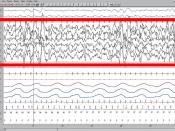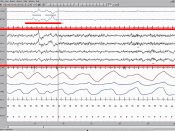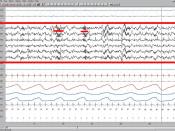The restoration theory of sleep function is carried out by Oswald, who argues that the purpose of sleep is to restore depleted energy reserves, eliminate waste products from muscles, repair cells and recover physical abilities that have been lost during the day.
Evidence for this theory is firstly by Shapiro, who found that people who ran an ultra marathon slept 1.5 hours longer then they did two nights following the race. In addition, stage four occupied a much greater proportion of the total sleep time and the proportion of REM sleep decreased. So by sleeping longer it shows that sleep is being used to bring the racer's bodies back to normal after the race. Another piece of evidence is that of the pituitary gland. It releases growth hormones during stage four sleep, which is needed for tissue and protein. The fact that stage four decreases with increasing age might be related to the fact that we don't need growth hormones as much as we get older.
Kale at al also did evidence for this study, as he argues sleep has a psychological restoration function also. Insomniacs suffer from psychological problems than healthy people. Furthermore, Hartmann found we need more sleep during periods of stress.
This may show that sleep is based around repair of the cells and the body. But the evidence for this is inconclusive and it is possible that sleep helps us to recover from the psychological as well as physiological exertions of our waking hours.
Evidence against this theory is by Ryeback and Lewis, who found healthy individuals who spent six weeks in bed showed little change in sleep patterns. If sleep was purely restoration then sleep patterns should have got less as there was less to restore if the person is not moving about expanding...


